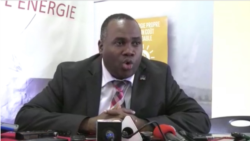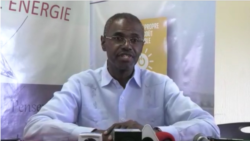VOA's Margaret Besheer contributed to this report.
WASHINGTON/PORT-AU-PRINCE, HAITI — Many Haitians dream of having electricity available at all times, but their hopes were dashed Wednesday when Jean Michel Durosca, a U.N. representative for development, bluntly said, "The power problem will take several presidential terms to resolve, I want everyone to understand that."
Durosca said that would be the case even in a climate of political stability, and achieving the goal of 24 hours of electricity is "extremely difficult."
"Although we haven't achieved this goal over the past 24 months, it's important to note that significant progress has been made," Durosca said at a Forum on Renewable Energy hosted by Quisqueya University in Haiti's capital, Port-au-Prince.
A study by USAID (the U.S. Agency for International Development) determined that only one-fourth of Haiti's population has access to electricity and that for those who do have access, service is unreliable and inconsistent.
Jean Jumeau Rene, executive director of the Haitian Energy Institute, says the main reason Haiti is so far from attaining sustainable energy is that there is no existing national or public plan to achieve it.
"Haiti must undertake energy reform just like every other country in the Americas," he said.
Rene said there needs to be a national strategy that is systematic, long term and independent of the president, the administration or any particular group.
"We need to go step by step and build the necessary infrastructure rather than going in circles the way we have done for the past 31 years," he said, adding that it could realistically take five to 10 years to see progress.
"There has been a lot of talk about a new plan for Haiti. There's been talk about changing the system. There is no magic formula to change the system," he noted. "It requires a systematic effort, a common discussion about what our objectives are — not only what we don't want — because what we don't want is obvious ... and then we must put in place the mechanisms to get us there."
The United Nations is pushing to meet ambitious global development goals and said Wednesday that governments need to accelerate and expand investment in key areas if they want to succeed.
U.N. Deputy Secretary-General Amina Mohammed, a development expert who oversees 17 targets known as the Sustainable Development Goals (SDGs), admits there are "huge challenges ahead" and that action is needed to make progress.
"The voices have been very loud in that we don't have time to lose," Mohammed told VOA.
Next week, 80 ministers will convene in New York to share what they have been doing to advance the development goals.







